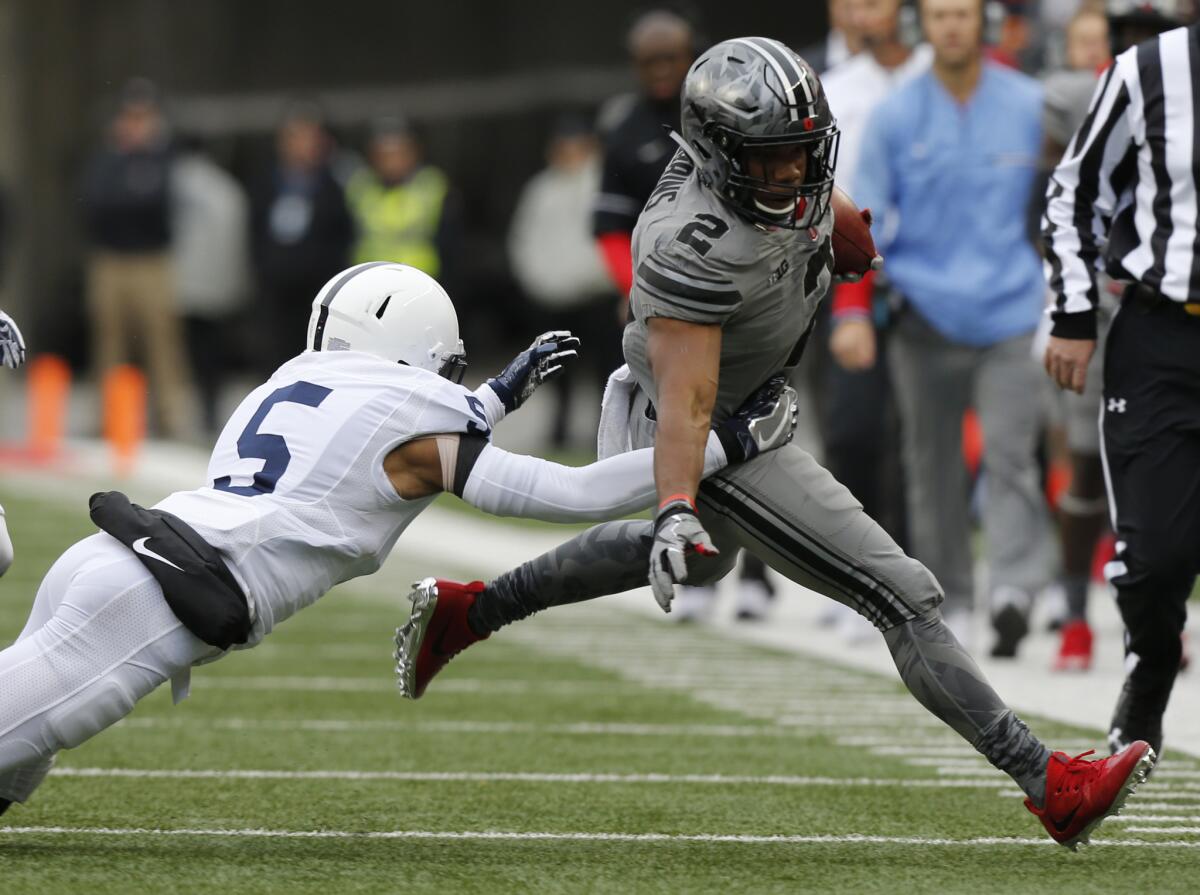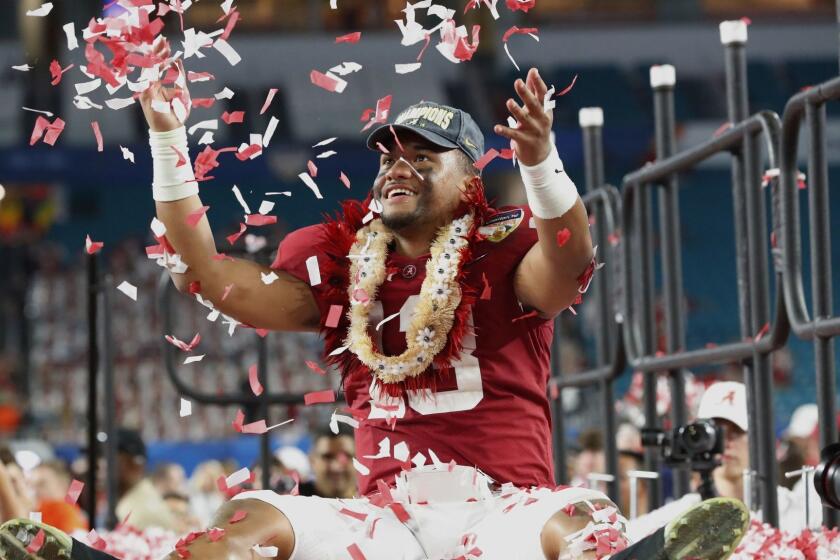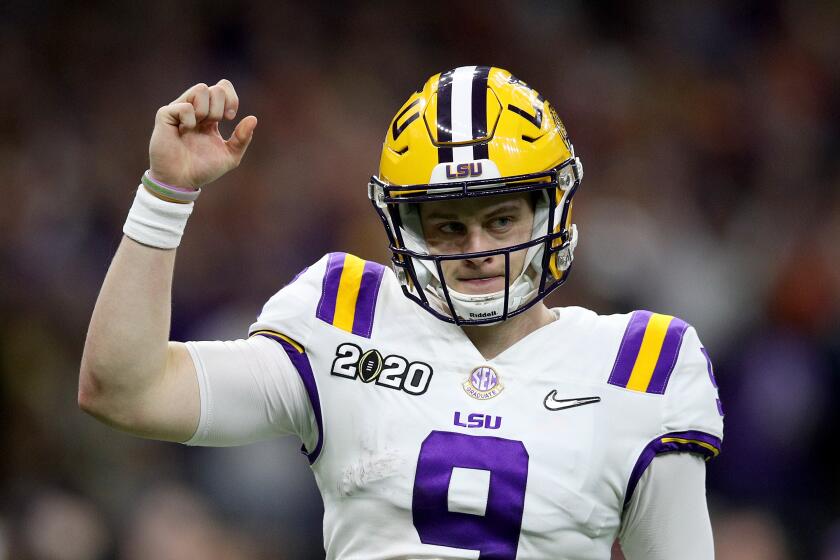Ohio State 2,000-yard rusher J.K. Dobbins tells NFL teams he ‘can do it all’

- Share via
The Times examines the top prospects ahead of the NFL draft, to be held April 23-25.
Eddie George nearly got there. Ezekiel Elliott came pretty close too. Archie Griffin won two Heisman Trophies, the only player in history, but never made it.
Some of the best running backs in college football history have come through Columbus, Ohio, but none of them matched what J.K. Dobbins did at Ohio State last fall, when he became the first Buckeyes back to reach 2,000 yards rushing in a season.
When it comes to running backs, prolific college productivity is hardly a reliable predictor of pro success. Of the 29 backs in college football history to reach that 2,000-yard mark, more have flamed out than flourished. For every Barry Sanders (2,628 yards at Oklahoma State in 1986), there’s a Kevin Smith (2,567 yards at Central Florida in 2007) or a Ron Dayne (2,109 yards at Wisconsin in 1996), seemingly diminished by their workloads before they hit the NFL.
Only a handful of college backs carried the ball more than Dobbins over the past three seasons — fellow top Big Ten back Jonathan Taylor of Wisconsin being one. But as Dobbins sees it, after 796 touches and more yards than any Buckeye back outside of Griffin, he’s just getting started.
“I always feel I have something to prove,” Dobbins said at the NFL scouting combine in February. “Even when I ran for 2,000 yards, I feel like I could have proved a little more.”
Joe Burrow, Justin Herbert and Tua Tagovailoa are all expected to be first-round picks in the NFL draft. The question is: When will they be off the board?
That’s the reality for most running backs entering an evolving league in which runners’ value is rapidly declining. It takes a truly transcendent talent to warrant a first-round investment.
Dobbins might be one of the worthy few. He’s a powerful downhill runner, capable of plowing over or bouncing off would-be tacklers. But the case for drafting Dobbins starts with his preternatural ability to navigate through and around them — vision he not-so-humbly describes as “out of this world”.
“It’s definitely a God-given talent,” Dobbins said. “I think that’s the best thing about my game.”
That has been the case since his days of Texas Pee Wee football, when teammates would wonder how he saw holes before they opened. Those instincts sharpened at Ohio State, where he became the second freshman to start at running back. In his first season, he ran for more than 1,400 yards and averaged more than seven yards per carry.
He did not match such efficiency again, but did triple his touchdown total in his final season. His 21 rushing touchdowns in 2019 tied with Taylor and Oklahoma State’s Chuba Hubbard for third most in college football.
If not for a high ankle sprain that knocked him out of the national semifinal against Clemson, Dobbins might have\ led the pack. At the very least, Dobbins says, the Buckeyes would’ve “definitely” made the national title game.
Joe Burrow’s accolade-filled final season at LSU makes him look like a shining star, but the quarterback actually has an underdog story.
Whether NFL teams will feel so confident in drafting him with a top pick remains to be seen. The ankle injury held him out of the combine, giving running backs such as Taylor and Georgia’s D’Andre Swift a shot to improve their stock.
Scouts also have questions about his speed and whether his big-play ability will translate to the NFL.
But Dobbins has no doubts. He can see his path to pro stardom already.
“I can do it all,” he said. “I can be explosive. I can grind it out. And I’m also a leader. I think I make everyone around me play better.”
More to Read
Go beyond the scoreboard
Get the latest on L.A.'s teams in the daily Sports Report newsletter.
You may occasionally receive promotional content from the Los Angeles Times.













